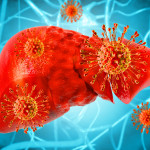Hepatitis and HIV activists have called for pharmaceutical companies and drug regulators to provide earlier access to new hepatitis C virus (HCV) therapies in development to people at greater need of treatment, including people on transplant wait lists and those coinfected with HCV and HIV. These demands were issued following a meeting of 50 activists, researchers, regulators and pharmaceutical representatives held in early June in Sitges, Spain.
The recent approval of Incivek (telaprevir) and Victrelis (boceprevir) has ushered in a new era of treatment for people with HCV. Whereas people infected with the hard-to-treat strains of HCV (genotypes 1 and 4) had previously achieved cures about half the time, the addition of these new drugs to standard HCV therapy has increased cure rates by up to 50 percent and shortened the duration treatment for many.
The future also looks bright, with several drugs active against HCV in the pipeline, several of which are currently in Phase II studies. Unfortunately, however, companies have been relatively slow to provide early access to new treatments—such as compassionate use programs providing drug to those who don’t qualify for clinical trials—for those who desperately need novel therapies, such as those with advanced cirrhosis and those undergoing liver transplants. Researching the drugs in people with these conditions and in people coinfected with HIV and HCV has also been slow, according to activists.
For several years now, key stakeholders have been meeting in Sitges each year to discuss issues that hindered the development of and access to new HCV therapies for people in greatest need of more options. At this year’s meeting, early access to new treatments was at the top of the agenda.
“Meeting participants emphasized the need for early access for ‘difficult-to-treat’ populations, including patients with HIV/HCV coinfection or liver cirrhosis, people who have undergone liver transplantation or are currently on transplant waiting lists, people in marginalized groups such as drug users, and particularly, access to interferon-free regimens for people who need them,” explained representatives from one of the meeting’s key sponsors—the European Community Advisory Board (ECAB).
“The most urgent need,” the group continued, “is for people with advanced disease who have no other treatment options and cannot wait for full approval of new therapies.”
Though there was agreement at the meeting about the need to move more quickly in these populations, activists insisted that more effort is needed by companies to conduct studies sooner in the drug development process so that people in greatest need may gain earlier access to the drugs.
“It is critical to study pharmacokinetics, safety and efficacy in a wide-range of groups that will use these drugs in real world practice,” stated ECAB. “New [direct acting hepatitis drugs] must be evaluated for drug-drug interactions with HIV antiretroviral agents, opiate substitution therapy (methadone and buprenorphine), immunosuppressants, antidepressants and other medications commonly used by people with hepatitis C.”
ECAB also insisted that researchers and companies share data about these kinds of drug interactions early and to involve activists in decision making and safety monitoring throughout.
Advertisement
Advertisement
Advertisement





Comments
Comments